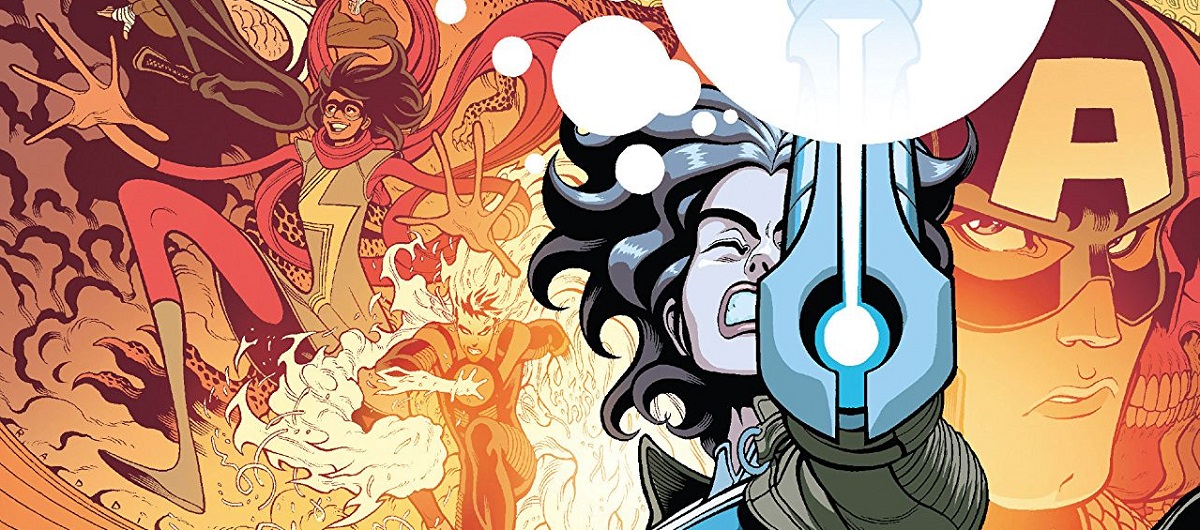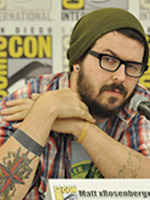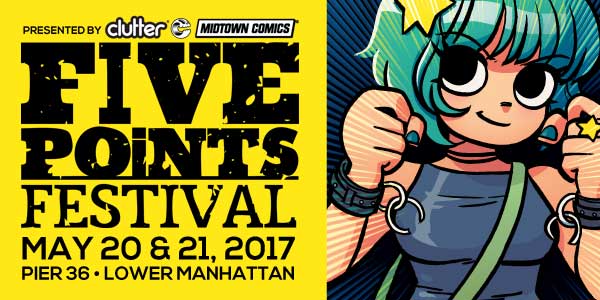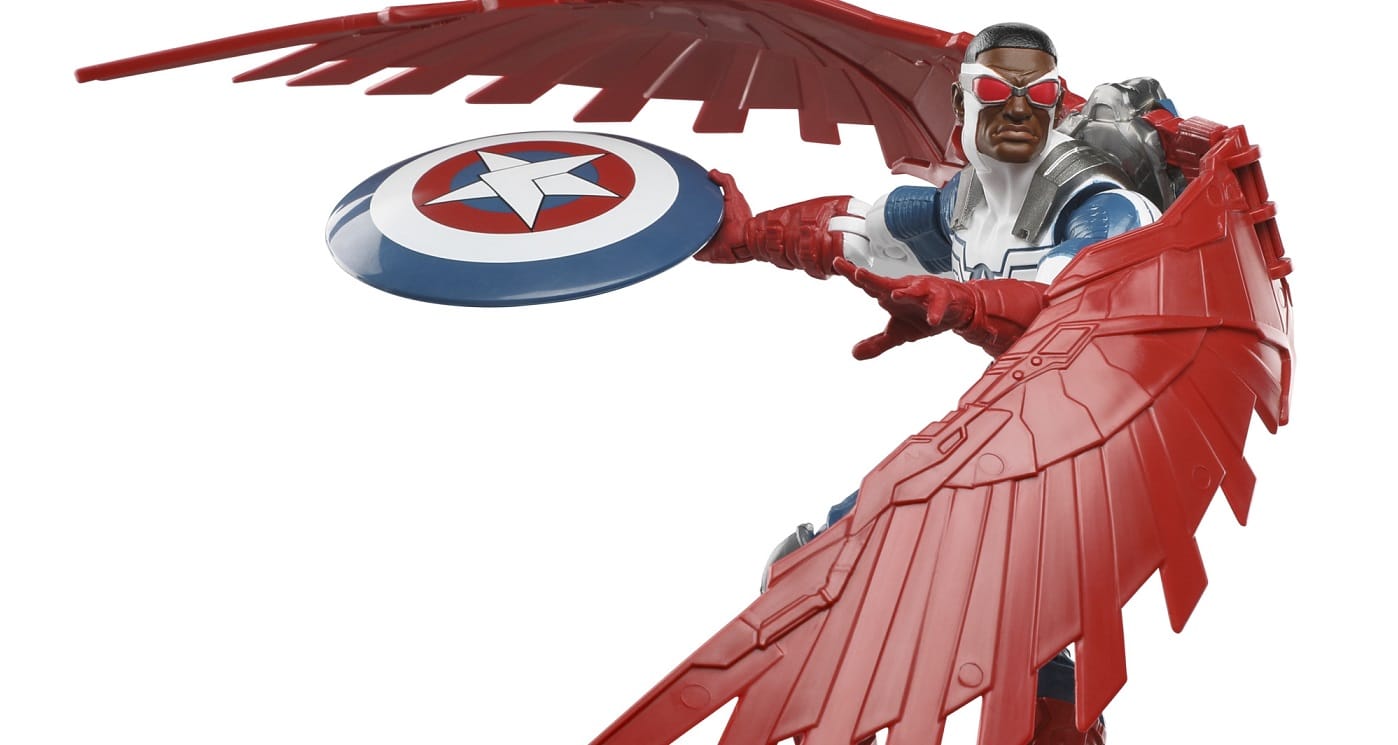[This weekend, Clutter Magazine and Midtown Comics are teaming up to bring a new kind of convention to New York City. Part comic-con and part toy-con, Five Points Festival “is a celebration of art and its creators – whether they make comics, toys, beer, or Korean vegan tacos.” As part of that celebration, they’ve partnered with the Comics Beat for a series of interviews with some of the festival’s guests – and some of the hottest talents working in the industry – to spotlight the creative process and creator concerns. ]
Matthew Rosenberg is an outsider on the inside. For years, the writer has worked with indie publisher Black Mask. A few years ago, he made it big alongside writer Patrick Kindlon and artists Josh Hood and Brian Level with We Can Never Go Home, a Bonnie and Clyde story with superpowers and a punk rock sensibility. Since then, Rosenberg has written a number of series for Marvel including Kingpin and Rocket Raccoon, bringing his flair for absurd humor and high drama to the house of ideas.
Last week, Marvel released Secret Warriors #1, the start to a new series written by Rosenberg and drawn by Javier Garron. The book features fan-favorite characters such as Quake, Karnak, Moon Girl (and Devil Dinosaur), and Ms. Marvel teaming up to face off against the new HYDRA led by Captain America. While Secret Warriors is slated to be an ongoing series, the timing of its launch, the nature of the first arc, and the series’ auspicious title inevitably tie it into Marvel’s controversial Secret Empire event.
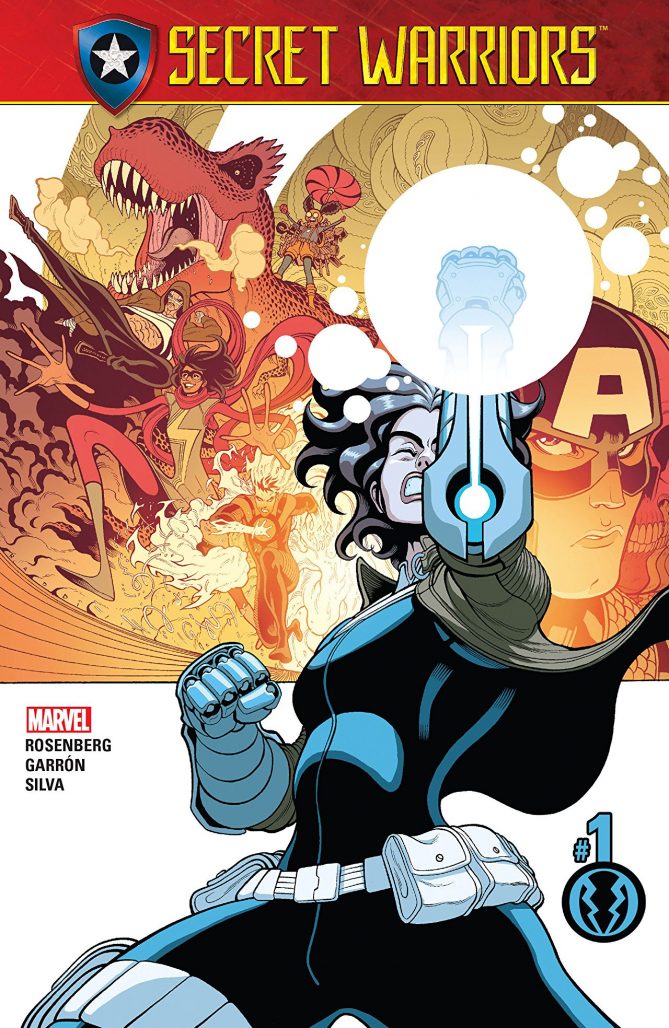
Rosenberg: Yeah. It’s my first team book. I mean, 4 Kids Walk Into a Bank has an ensemble cast, which I guess made Marvel think that I could handle Secret Warriors, but 4 Kids works a little differently. In that book, I’m not beholden to the same things I am here. I don’t have to figure out what the dinosaur does in every issue—that’s something that makes Secret Warriors a bit tougher!
Lu: How did you get involved with Secret Warriors?
Rosenberg: It’s funny, actually. A few years ago, an editor named John Moisan asked me to pitch for a series of S.H.I.E.L.D. one shots they were doing. I pitched Quake because I really love that character. She has a great history both on the TV show and in the comics. I always had a soft spot for her, but it became even softer because I ended up having the opportunity to write my first full story at Marvel about her.
Plus, the reaction I got to writing about her was awesome. When I went to cons after that issue came out, I’d meet and talk to people who were really excited about the story and seemed to be very different from a lot of the people whom I would normally talk to.
So, while I was pitching Wil Moss on my Kingpin miniseries, he took over the Inhumans characters. The week he started overseeing them, I emailed him and was like, “Can I do a Quake series?” And he was like, “Uh, maybe.” I pitched a Quake series, and he read it and was like, “I really love this, but I don’t know that we can do it.” And he was like, “But would you want to do a team book with Quake as the leader?” And that seemed awesome to me. We didn’t know that the book would be Secret Warriors yet, but I love the Jonathan Hickman run on that series so when we started building the team I thought of that series and it sort of all came together from there.
Lu: What is it, in particular, that you love about Quake?
Rosenberg: I love her introduction in Secret War. She’s young, Nick Fury’s protégé, and really mysterious. But she’s also super confident and badass. In that book, she has more of a sense of direction than the other heroes do, and from there I think that Hickman did a really great job of fleshing her out and giving her flaws—giving her more humanity, in a way.
But she’s always been like a great mix of relatable and mysterious, and super powerful, but a lot very accessible. I think she’s just such a cool character, that she’s so self-possessed and so well-composed, and also like underneath there’s an earthquake. She’s dangerous. She’s danger personified.
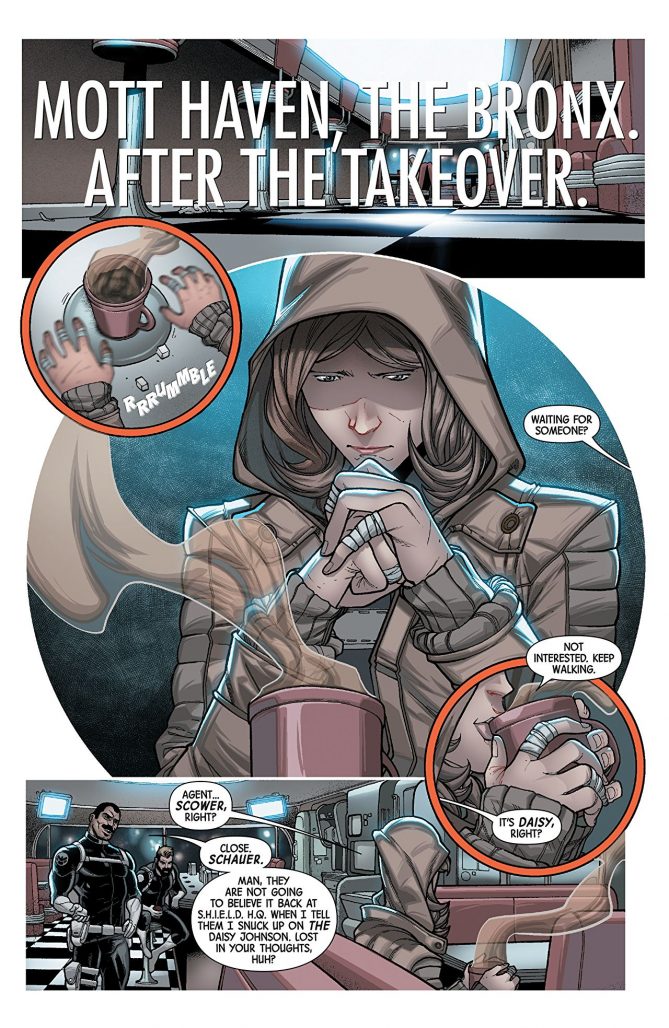
Rosenberg: The first thing I do is study the hell out of them. I’ve been reading Moon Girl and Devil Dinosaur. I’ve been reading Ms. Marvel. I read everybody’s books and when I got Secret Warriors, I went and re-read everything…like 28 trades worth of stuff. I made notes to try and understand the characters.
I’ve been lucky because a lot of my cast members such as Inferno, Ms. Marvel, Moon Girl, and Quake were all created by people who are still at Marvel. So after I made my notes I talked to Brandon Montclare and Amy Reeder about Moon Girl. I talked to Bendis about Quake. I talked to Charles Soule about Inferno. I talked to G. Willow Wilson about Ms. Marvel. I had a bunch of little interviews with these creators and asked them what they think makes the characters work and what doesn’t. I asked what they think these characters should be doing. It was really helpful to me because I really do love all the characters in this book—I think they’re great characters and I want to get them right.
Lu: Even after all this preparation, did you encounter any particularly notable challenges while scripting?
Rosenberg: Yeah. One of the challenges of a team book is that you want to give everyone the spotlight because in theory, everyone is someone’s favorite character. Obviously, Ms. Marvel is a front runner—she has a huge fan base—but Moon Girl, Quake, and Inferno have huge fan bases too. You don’t want anyone to pick up the book and think they’re going to get a good moment with their favorite character and come away thinking that I didn’t give it to them. However, finding something for everyone to do while still keeping the book honest is really hard. You don’t want to just shoehorn moments in.
Also, as you write, you realize these characters wouldn’t necessarily get along. For example, Moon Girl is very self-assured. She is very much in her own world, confident that what she is doing is right. Karnak is the same way, but creepier, so when you put these two in a room together, they don’t complement each other. They’re like oil and water. And there’s a lot of that in Secret Warriors. These characters bicker and argue a lot, so creating a team dynamic is really hard.
Lu: When Secret Warriors #1 opens, our heroes have basically just found out that Captain America is a member of HYDRA and has taken over the United States.
Rosenberg: The book sort of works on two timelines, actually. This is a bit of a spoiler, I guess, but each issue in this story showcases a character and how they came to join the resistance against HYDRA. Each issue also shows us the timeline moving forward from the point where these heroes have come together as a team.
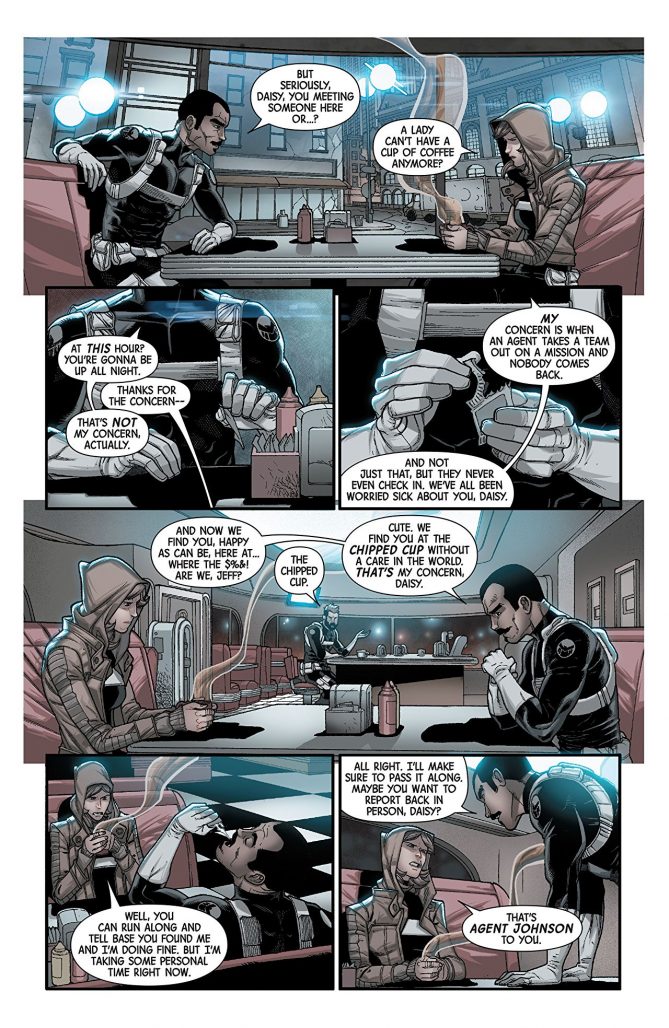
Rosenberg: I think it’s different for everyone. For example, Quake is sort of falling apart because she’s a part of S.H.I.E.L.D.. That’s all she’s ever known—Nick Fury and Agent Couslon—they’re her family. She deals with some really upsetting things in this book because she has to watch S.H.I.E.L.D. become something that she’s not used to. Something she can’t go along with. This story is about losing her family.
Then, with Ms. Marvel—she feels like she’s in over her head. She’s a hero, but how do you deal with a world that’s changed so dramatically so quickly? Moon Girl and Inferno sort of keep to themselves, but they’re stuck away from home doing things that are alien to them.
It’s impossible to say what Karnak is thinking. Karnak doesn’t spend a lot of time being emotionally involved in things. He is a planner and a schemer. There’s a bigger Karnak story at play that we’ll reveal throughout this arc, but he’s had a bigger plan that’s been in motion for a long time and will continue to be put in motion. This all has to do with the mystery of why he stayed on Earth even though he’s a member of the Inhuman royal family and the rest of the family left Earth before Secret Empire began.
Lu: I know you said that he and Moon Girl are like oil and water, but Karnak seems to have this weird affinity for her in Secret Warriors #1.
Rosenberg: He does. I mean, he’s oil and water with a lot of people, but he doesn’t necessarily get that and Moon Girl is very important to him. Depending on who you ask, she might be the smartest person in the Marvel universe. That makes her untapped potential in Karnak’s eyes. He wants to tap that potential and figure out what he can do with her.
Lu: Now that I’m thinking about it, this might be one of the first times, if not the first time, that Moon Girl has been shown outside of Manhattan.
Rosenberg: Yeah. This may the first time she’s left the Lower East Side. So, it’s not just Manhattan—Secret Warriors may the first time she’s left her neighborhood in her whole life. And that’s her thing in this comic. She doesn’t want to be doing any of this. She has a sense of duty that makes her want to help people, but she’s still annoyed that she has to do any of this.
Ms. Marvel fights for justice and the side of right. Quake has a sense of burning vengeance in this comic. Moon Girl is mostly annoyed. She wants to return things to normal and go back to her house, her neighborhood, and her family. So, she’s a funny one to have for sure.
Lu: Yeah. In a way it’s almost frightening that she’s actually there at all. Isn’t all of Manhattan inside that negative space bubble right now?
Rosenberg: All of Manhattan is in a bubble, yes. We will explain why she is not in the bubble soon.
Lu: Do you think the bubble is a metaphor?
Rosenberg: That’s a broader question. I think the bubble may be a metaphor. You’d have to ask Nick Spencer that. I’m from Manhattan. I was born here. So, I’m definitely within that bubble. So, I shouldn’t be guessing, I guess, because I have a stick in the game.
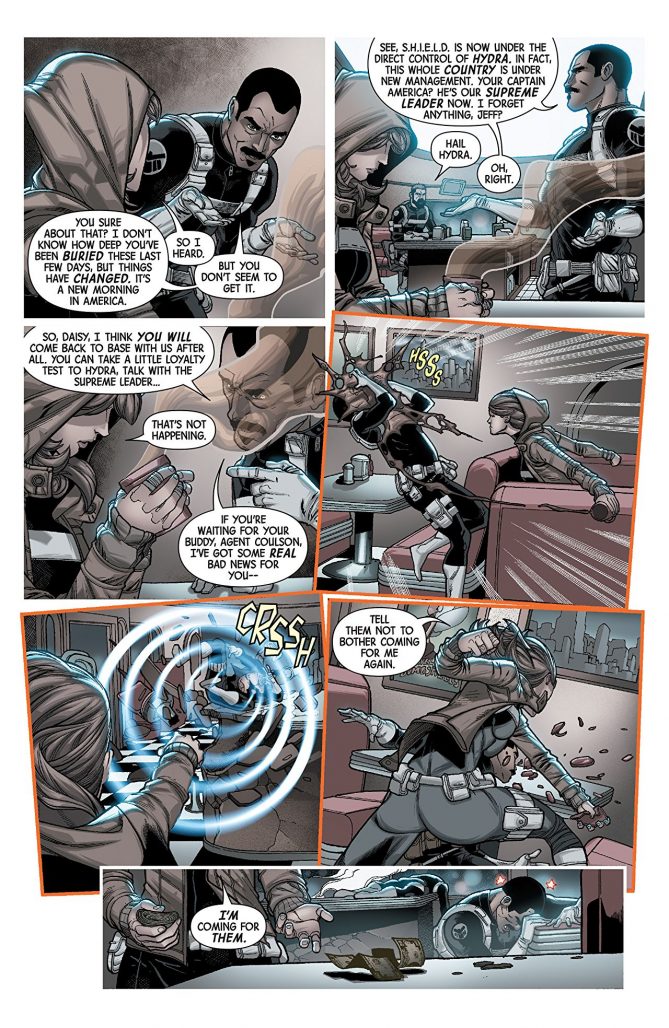
Rosenberg: I think Nick’s book works as a whole. This may run counter to what Marvel or Nick want me to say, but I think that his book—what it is, what he’s saying, and where it’s going—it’s a complete idea. I think it’s a well-researched, very thought out, very meticulously planned idea. So, I don’t want to come out and say that I’m adding anything to it, but I would say I feel, personally, that Secret Empire is about the liberties that we sacrifice for the idea of security, and how we let our own safety hurt other people.
Secret Warriors is a book about marginalized people. This is a book about people who are a little forgotten, a little ignored, and a little underestimated. They’re a very different kind of team. Four of the six members are very young and one of the other members is a dinosaur. Beyond that, they all have really different backgrounds that color their views on what it means to be a superhero. They only come together because they have to.
If anything, I don’t think we are commenting on Secret Empire as much as we’re using it as a springboard for our ideas about putting aside our differences and taking care of the dispossessed. This book is about looking out for people who are marginalized and stepped on. It’s about putting aside your differences and coming together. You know, in some ways, that’s a basic super hero book, but I think Secret Empire is a good springboard to explore those ideas under really drastic dramatic circumstances.
Some of the characters in Secret Warriors are people who could have gone along with Captain America’s plan. Their lives would have been better if they did. Some of them would have had horrible lives whether or not they went along with it. But they have others looking out for them. This book is a lot about how we come together in trying times.
I was talking to a friend recently. He asked me why, in superhero books and movies, when something terrible happens, humanity panics but superheroes come together. I said, “Well, that’s sort of what superheroes are about.” Then, he said, “but that’s not realistic. When something terrible happens, humanity comes together. You can see in times of crisis that that always happens.” And it’s true. You often see the best of people when there’s a disaster of some sort.
So…that’s a really broad and maybe evasive answer. In the end, Secret Warriors is about disparate people coming together and overcoming their differences to kick evil in the teeth. Which I think is really important. I think there are differences people have, but I think it’s important, in the end, to try and find the people you can ally with and stand by them.
Lu: Given the controversy surrounding Secret Empire, did you feel like there was outside pressure from Marvel or Marvel readers to comment on the event through your book?
Rosenberg: When I initially pitched Secret Warriors, it wasn’t tied into Secret Empire. However, they told me that if we’re launching during the time period of that event, it would make the most sense to tie into it. I was excited to do it because I knew that there was a small, but important section of fandom that was feeling a little hurt—or a lot hurt—by Secret Empire. And I don’t expect those people to buy a book that ties into that event. I don’t expect those people to do anything, but I did want to present something that is fighting back from day one. It’s never a question of whether or not these six characters are going to go with HYDRA. There’s no doubt that they’re not going to. That was important to me.
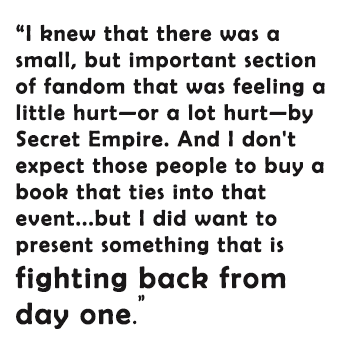
Then, there are books that are dark, oppressive, and dystopian. Secret Empire is an example of that. With Secret Warriors, I wanted to present something different in this buffet of ideas, so I did a book that clearly defined where my characters stood in opposition to Secret Empire. And it’s not that there isn’t opposition in Secret Empire—that’s a big part of Secret Empire—but I wanted, from day one, to show my whole team fighting back.
But, I don’t want to say that I felt pressured by Marvel or the community to take a stand. I respect them both and would listen to them as best I could, but in the end, this was for me. I feel like fans who want to see that kind of book deserve it. And I want to see that kind of book, so that’s what I made.
Lu: Is there a chance that we’ll get to see your original pitch for Secret Warriors once Secret Empire ends?
Rosenberg: Yeah. There are parts that have been thrown out. There are parts that have been moved up. And there are parts that come back. But the overall plan is still in play. I was just talking with Sarah and Wil, my editors, earlier this week about stuff that we’re doing. We’re setting up issues eleven and twelve right now.
So, yeah, Secret Warriors is a longer story for me. It’s a big idea and I hope that people who are in it for the Secret Empire stuff stay with us. I also hope that people who want to read the book but don’t want to read Secret Empire stuff check us out because we are sort of doing our own thing, as it were.
Secret Warriors #1 is on store shelves now.


